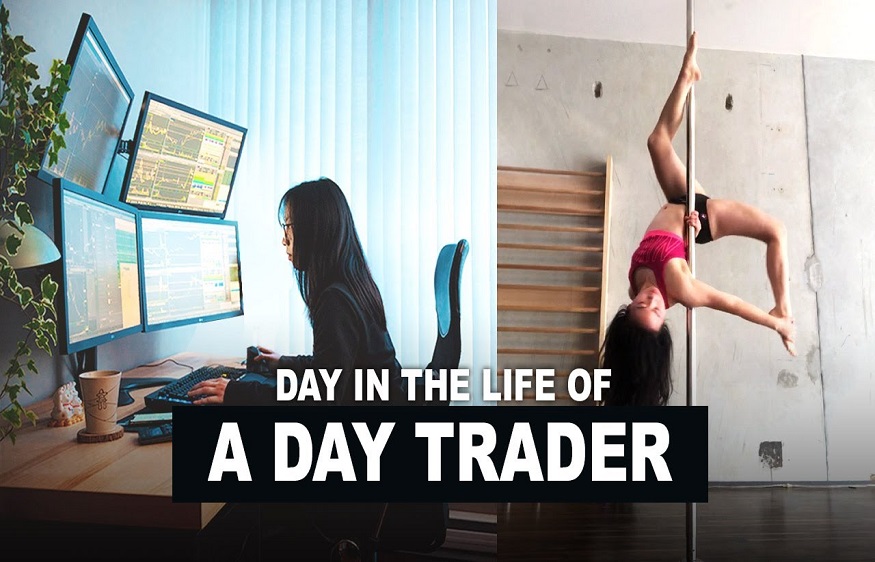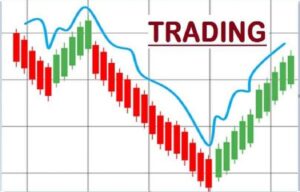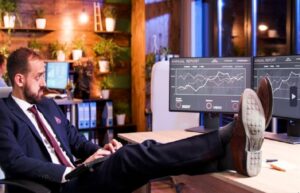The trader’s daily life

Become a trader, finish a trader
Let’s say it right away, the recruitment processes for traders are very competitive. French banks are the most picky about diplomas and some much more than others. But the largest banks in the world are all Anglo-Saxon (American or English). And there, the question of diplomas arises less, even if it is sometimes the case (in particular where there are “nests” of French people from the Grandes Ecoles, which happens regularly, the mathematical skills of the French being appreciated ).
It’s hard to say when you’re not HRD, but not having gone through a preparatory class or Dauphine is undoubtedly a barrier. The norm is a diploma from a major engineering school (X, Centrale, Mines-Ponts, Télécom, Sup’Aéro, ENSAE, etc.) coupled with a financial or stochastic third cycle.
That said, there are plenty of modest banks and brokerage houses where the profits may not amount to hundreds of millions of euros per trader, but which offer less qualified people plenty of opportunities. It should also be noted that success in tradingdoes not always go through diplomas (as well understood by Anglo-Saxon banks) but often through traders’ own talent for understanding the market and predicting its reactions. That said, there is another fairly reputable possibility that allows room integration, including the rooms of the biggest banks. If the candidate has a rare skill that he can show off on a floor , he’s worth the money. One of the best-known examples at the moment is knowing Quranic investment laws or speaking Arabic.
By nature, the assistant trader is intended to become a trader (except in certain well-defined banks). He just doesn’t have the means to be hired directly, so the requirements in terms of diplomas are quite comparable, even if slightly lower. He occupies this intermediate position because we want to test him, whether in a long or short internship, in LIFE. But that doesn’t fundamentally change anything, because he is by definition sitting between two chairs. What is important is that traders are aware of what it is destined to become. In any case, like anyone in whom we place hope, the objective is for him to form. He is therefore given a degree of freedom: rotations and meetings with traders from other desks, etc.the royal way is to apply online on the banks’ websites through their standardized recruitment system, to join the very expensive ” graduate program”, incubators for young graduates where traders, salespeople, structurers, researchers, who are also the future leaders of the bank.
Finally, whatever path is taken, the trader, more than anyone in the room, must have this dual ability to deal with technical and economic issues. knowledge of the main derivative products and principles for pricers , knowledge of current and substantive issues, of the functioning of the monetary system and of the main players in the capitalist system, knowledge of current events in French and multinational companies).
At the end of his career, the retraining of a trader is difficult outside the trading room, because the profession is excessively specialized. Salaries are also a compensation for this state of affairs and many traders retire 10 to 20 years after their debut. A minority of passionate star traders, renowned for their skills with clients, launch their own investment funds. One of the requirements for launching a fund is the contribution of equity capital, at least several tens of millions of euros.
Trader in front of quotation screens
Watch a trader work, and you’ll wonder if all these hurdles are justified. Because the practice is simple. The daily activity of the most common of traders, the vanilla products trader, is based on three pillars: information, intuition and technique. The first takes up most of its 8 or 9 screens. Systems such as Reuters or Bloomberg continuously deliver world news.
Traders, what future?
A recent parallel development induced by the growing importance of exotic products is that one of the trader’s two functions is gradually taking precedence over the other. The function of risk engineer, the one that is mechanical and where academic reasoning plays an important role, increasingly ejects the more intuitive function of speculation. This part of the trade is the risky one, since it makes money on stochastic market movements. This change has at least three practical consequences in the room: the first is that prop traders, emblem of a certain trading , and all the functions that involve the bank’s equity, are increasingly rare. The second is the growing place occupied by trading machines .







